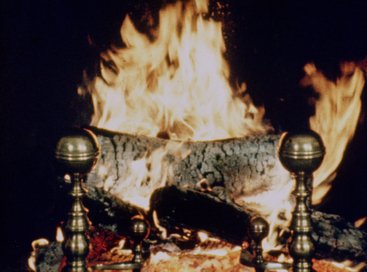25 December 2023
Yule comes from the Old English geola. The word probably originally referred to the winter solstice and the associated celebration of the days growing longer. The Old English word is cognate with, but apparently not descended from, the Old Norse jól, a pagan solstice celebration. In later Old English use, the period for which we have written evidence, geola came to refer to the Christmas season, and more specifically to the twelve days between Christmas and Epiphany, the “twelve days of Christmas.”
The English term is attested to as early as 726 by Bede in his De temporibus ratione (About the Reckoning of Time):
XV. De Mensibus Anglorum
[…]
Primusque eorum mensis, quem latini januarium vocant, dicitur giuli; deinde februarius, solmonath; […] november, blodmonath; december giuli, eodem quo januarius nomine, vocatur […] Menses giuli a conversion solis in auctum diei, quia unus eorum praecedit, alius subsequitur, nomen accipiunt.
(15. About the English months
[...]
And the first of their months, which the Latins call January, is called Yule; then February, Solmonath; [...] November, blodmonath; December, Yule, by the same name as January. […] The Yule months derive their name the change of the sun in the length of the day, because one of them precedes [that change] and another follows.)
While one would normally assume that Bede knew the English names for the months, it seems unlikely that two months would bear the same name. And we don’t see a standalone geola used as the name of the month except for here and in later works that are relying on Bede. Instead, the extant texts that don’t have Bede as a source use the phrases se ærra geola, literally before Yule, for December and se æfterra geola, literally after Yule, for January. There are also uses of geolmonaþ to refer to December. We also see geohholdæg, literally Yule-day, used to refer to Christmas Day or to one of the twelve days of Christmas. (There are other inaccuracies in this passage from Bede. He plays fast and loose with the facts in this passage, which is something of a polemic that attempts to denigrate pagan practices. For instance, he gives the origin of solmonaþ as a “month of cakes” that are offered to the gods. This explanation spurious; we don’t know the origin of the name. The obvious conclusion would be that it means “sun-month,” but that makes little sense for February. Also, it is here that Bede gives the spurious explanation that Eostre (Easter) is the name of a pagan goddess. Here and elsewhere, Bede is simply not a reliable narrator.)
That’s the origin of yule. It has always referred to the period around the winter solstice/Christmas, with various specific applications depending on the circumstances.
Sources:
Bede. De temporibus ratione. In Opera de temporibus, Charles W. Jones, ed. Cambridge, Massachusetts: Medieval Academy of America, 1943, 211–212.
Dictionary of Old English: A to I, 2018, s.v. geola, iula, n.; geohhol, gehhol, geol, n.; geol-monaþ, iul-monaþ; geohhol-dæg.
Middle English Dictionary, 2019, s.v. Yol, n.
Oxford English Dictionary, second edition, 1989, s.v. yule, n.
Zoëga, Geir T. A Concise Dictionary of Old Icelandic, (1910). Toronto: U of Toronto Press, 2004, jól, n.
Image credit: WPIX television, 1966. Wikimedia Commons. Fair use of a single, low-resolution frame from a television program to illustrate the topic under discussion.

